The help Trump promised hasn’t come. So this ‘dying city’ is determined to save itself
In rural Palatka in Florida the big retailers are closing and the lack of jobs has left community leaders a grasping to claim a resource that is theirs alone
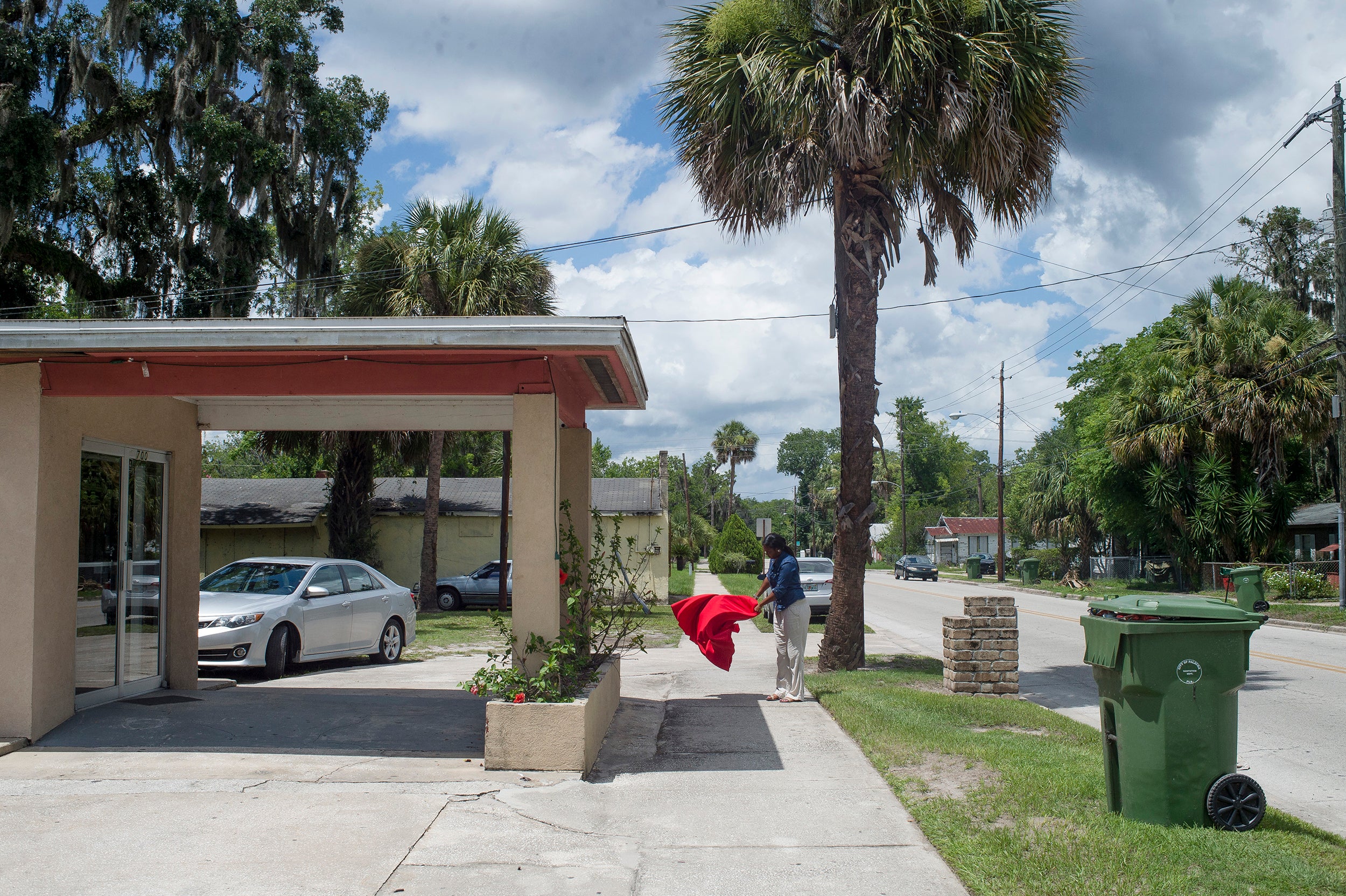
Your support helps us to tell the story
From reproductive rights to climate change to Big Tech, The Independent is on the ground when the story is developing. Whether it's investigating the financials of Elon Musk's pro-Trump PAC or producing our latest documentary, 'The A Word', which shines a light on the American women fighting for reproductive rights, we know how important it is to parse out the facts from the messaging.
At such a critical moment in US history, we need reporters on the ground. Your donation allows us to keep sending journalists to speak to both sides of the story.
The Independent is trusted by Americans across the entire political spectrum. And unlike many other quality news outlets, we choose not to lock Americans out of our reporting and analysis with paywalls. We believe quality journalism should be available to everyone, paid for by those who can afford it.
Your support makes all the difference.As the sun sets along the widened expanses of the St Johns River in Palatka, Florida, mayor Terrill Hill grabs a cooler filled with beer. He climbs aboard the Pride of Palatka. Inside the red-and-white riverboat sits a group of visiting environmental enthusiasts, eager to see the attraction locals hope could revive this rural town they love.
Sam Carr, a Palatka native who runs a group promoting outdoor activities, tells passengers they’ll soon be immersed in a water-world of green marshes and moss and mangroves, of tall birds wading in the current and alligators lingering in the water.
The travellers hope the old river might be the key to a prosperous future for a rural community that, like many others across the US, has been largely left behind by the modern economy. They envision bed-and-breakfasts along the water, condominiums rising for retirees who might prize the view, and tourists flocking to experience a rare pocket of undisturbed, natural Florida.
“This is our best thing,” says Carr.
As Carr continues his talk, the sky turns dark and grey. The waves rise and, in the distance, lightning flashes.
“We have to leave the boat,” he says and the group evacuates.
The return to the river will have to wait.
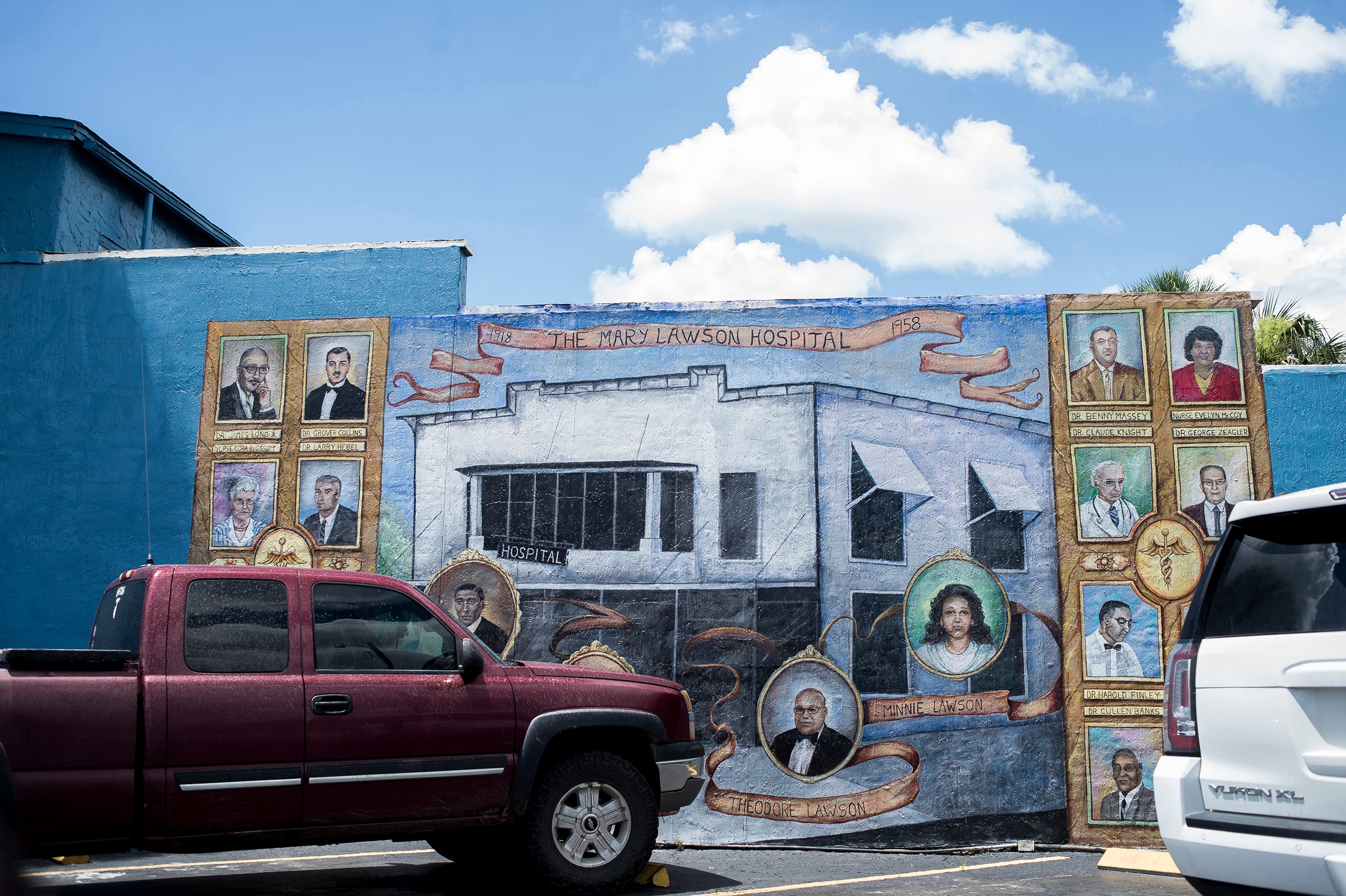
Palatka, a city of 10,400 swaddled by potato farms and a paper mill that employs a small fraction of the workers it once did, is desperate for an economy to call its own.
Abandoned by retailers that have moved out of their city, and disappointed that President Trump is yet to deliver on his promise to restore economic opportunity to small communities, the people here say they don’t have much choice.
The alternative would be to allow their beloved home to become the next example of a dying American small town. To help save it, some have started homegrown carwashes and small restaurants and bars selling craft beers. Others have worked with developers to build apartments downtown. And officials here are striving to turn the riverfront, a resource that is unique to their city, into a future hub for tourism and a draw for retirees.
“We have to tap into our locals, our entrepreneurial spirit and our aspirations to substitute what is happening around us,” says Mayor Hill. The 44-year-old grew up here, left to get degrees from Howard University and the University of Florida, and returned to open a law practice.
Some had thought this would be a year of revival here. Trump had vowed a major deal to pour trillions into roads, bridges, water systems and other infrastructure projects that Palatka, like many other communities, has been seeking for years. Some Democrats, even in these tense times, say they were eager to work with him.
Instead, its only branch of department store Kmart went out of business this spring, and the town’s beloved JC Penney store closed its doors last week, eliminating dozens of jobs and the only thing around that resembles upscale shopping.
Opioid abuse is rampant and one in 10 residents continue to live in public housing. The school system ranks among Florida’s worst. And the city’s pipes are so old that the water sometimes comes out the colour of rust.
One by one, the institutions that Palatka officials had wanted to depend on were proving unreliable. Requests this year for financial assistance from Washington and Tallahassee have gone unanswered. A plea by the mayor to J.C. Penney’s to reconsider shuttering the department store was shot down.
In some ways, the strategy of self-reliance is a return to the city’s past.
For decades, Palatka’s leaders and residents had embraced their bubble. Politicians rejected plans over the years to build highways that would have connected Palatka to Interstates 75 and 95, spurring growth. Back then, they were afraid growth might change things too much.
Sixty miles south of the sprawling city of Jacksonville, residents here have relished their lifestyle in a place Hill calls “the last bastion of old Florida” – shaggy trees, old houses with worn-out roofs, accents that were more Montgomery, Alabama, than Miami.
From the city’s founding, residents relied on the river to attract thousands of jobs. It once brought in a furniture manufacturing plant and a paper mill.
And, in a city whose population is close to evenly split between blacks and whites, Palatka residents take pride in their values. Whites here largely rejected the Ku Klux Klan when it was terrorising black residents in other parts of north Florida, according to vice mayor Mary Lawson-Brown, 81, who is black. Lawson-Brown’s grandmother operated an integrated hospital; her grandfather ran the funeral home. No one could be born or buried in town without help from a black person.
“We were still a segregated city, especially on Sunday,” Lawson-Brown says. “But we didn’t have any racial riots... everyone wanted to preserve Palatka.”
Over the past two decades, however, the small city has been forced to contend with the realities of the global economy.
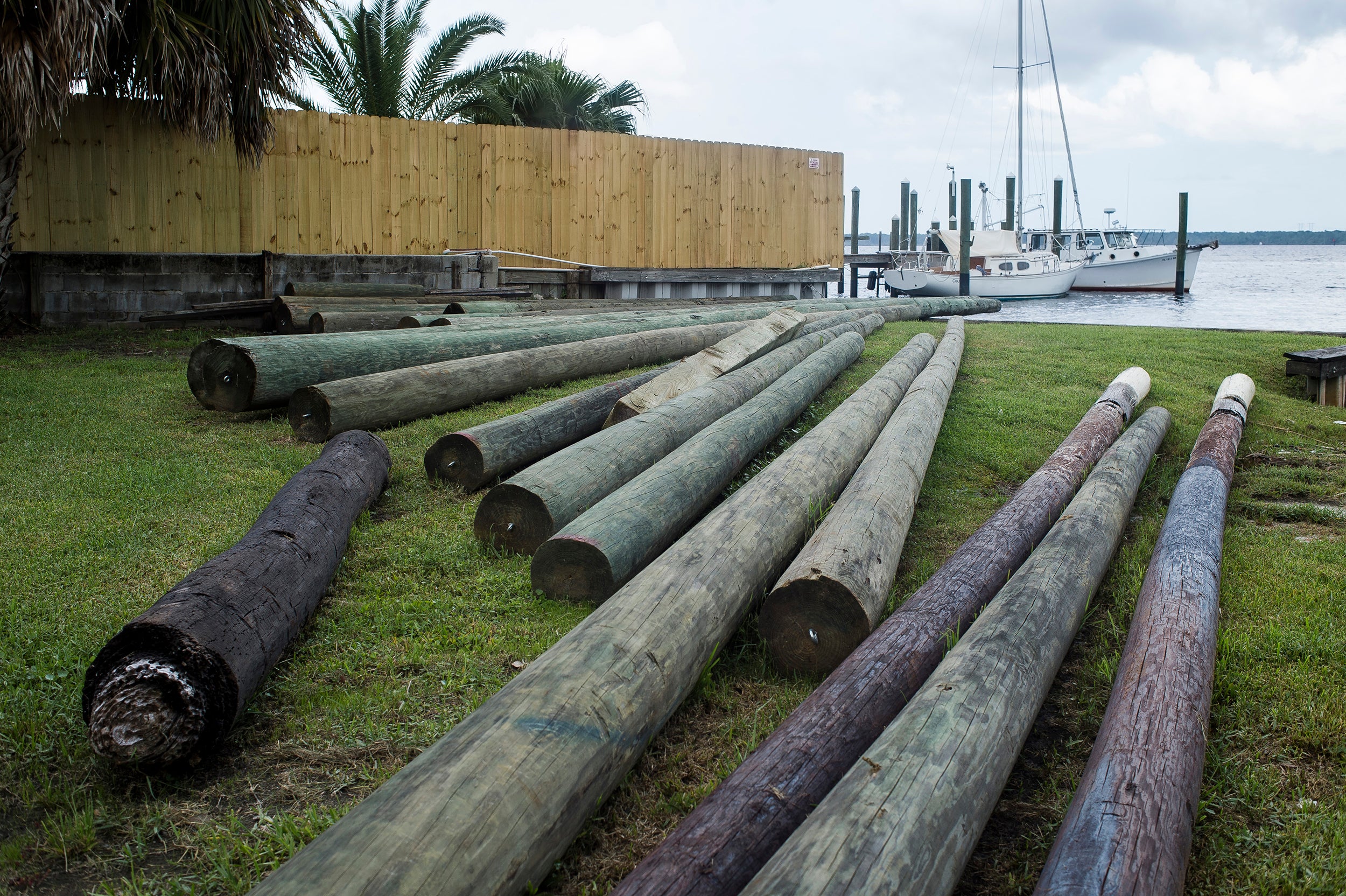
The furniture manufacturer closed in 2003, citing competition from Chinese imports, according to news reports at the time. About 650 people lost their jobs. The old factory building sits on River Street, unused and empty.
Automation and competition led to jobs at the paper mill, which is owned by Georgia-Pacific, being slashed by a third, to 850, over the past 12 years, according to public affairs manager Terry Hadaway.
By 2013, local leaders were horrified to learn that an expert hired by the Florida League of Cities had found that Palatka was the state’s only “dying city.”
The designation was based on pure statistics – more deaths than births, more people moving out than moving in. But it stung.
For Hill, the label served as an inspiration to make the leap into politics. In 2014, he ran for mayor with the slogan “Helping Our Palatka Evolve”, and persuaded one of his friends to run for the city commission. They won overwhelmingly, and Hill became the second black mayor in Palatka’s history.
By 2016, the five-person city commission was all black. Four commissioners were younger than 50.
“The city needed fresh ideas,” says Ed Killebrew, a white fifth-generation Palatkan. “And they were all from here, so they understood what we needed.”
When it came to the presidential election, Killebrew, like many others in this traditionally Democratic city, made a similar calculation.
“There was only one candidate who I felt knew what we needed,” says Killebrew. “That was Trump.”
And what does Palatka need?
“Help,” he says.
To understand the city’s troubles, Killebrew suggests, take a stroll through the Palatka Mall. Foot traffic has been reduced by online retail, and other stores left for bigger cities throughout the country.
When Killebrew was growing up, he remembers going with his family to shop for Boy Scout uniforms downtown and lining up along the main street for the annual Christmas parade.
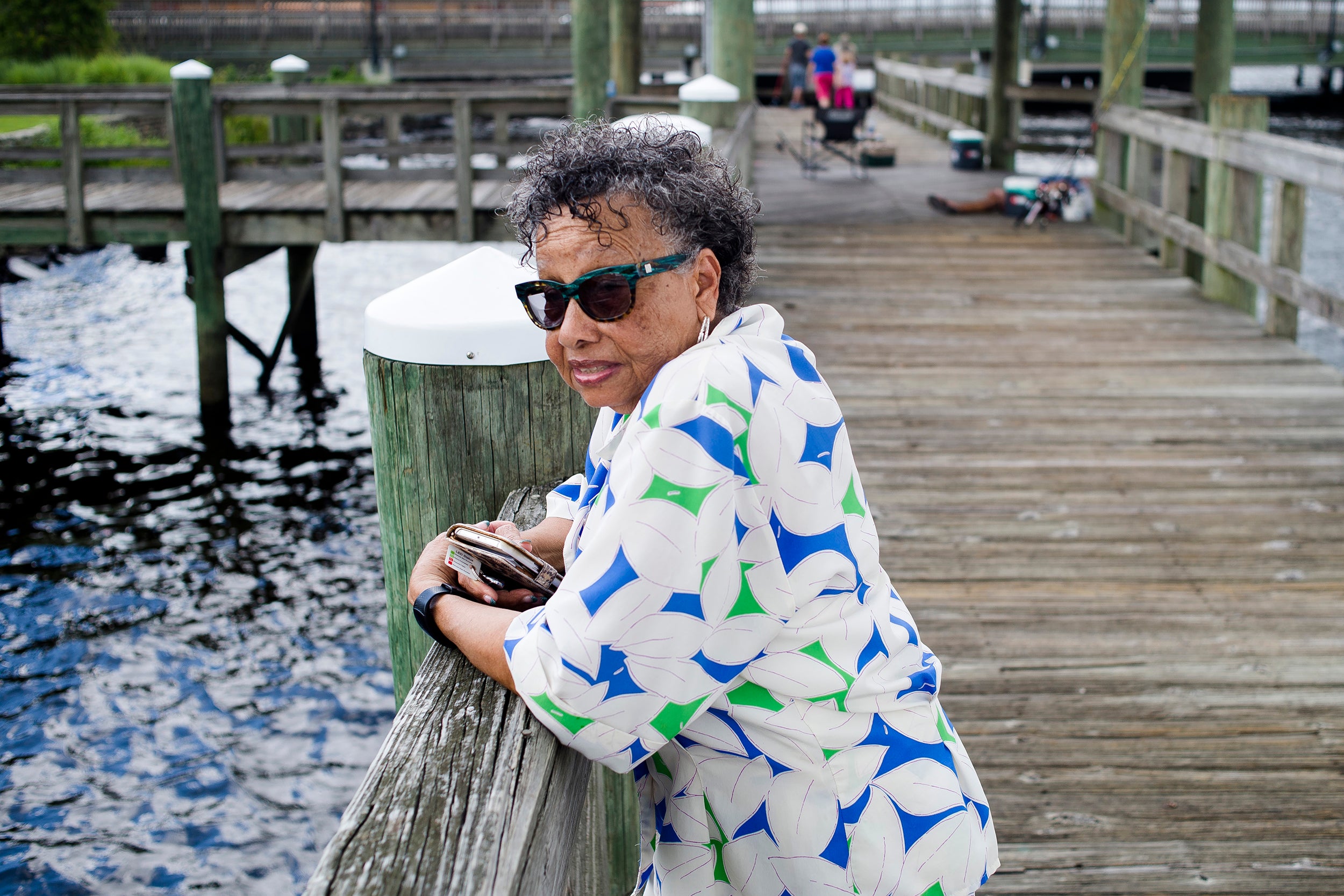
Then came the mall in 1981, taking all the major businesses within its enclosed peach-colored walls. Its anchor was the J.C. Penney, which had put its first Florida store in Palatka in 1928 and employed a generation of workers, mostly women, who generally did not seek to work in the sulfurous-smelling mill.
For years, the new mall was filled with people, and it bustled with commerce.
Today, there are almost no people and hardly any commerce. The mall sits as an empty, dimly lit shell where lizards race up and down with abandon. The parking lot in front of the old J.C. Penney is empty.
Hill had tried to make the case for JC Penney to stay.
In April, he wrote to the company’s chief executive in Plano, Texas, to explain how much his city depended on the department store. He noted Palatka’s low rate of car ownership and said many residents could not easily get to the nearest store, 30 miles away in St Augustine. There is a local bus service that caters to seniors.
“We have lost too many major retail chain stores,” Hill wrote.
The company’s senior counsel, Arnold Grothues, responded five days later. He was not convinced.
“We are sensitive to the fact that this is a blow to our associates in those stores and to the communities they have served,” Grothues wrote, according to a copy of the letter provided by the city. “But I must stress that the decision is final.”
A J.C. Penney spokesman declined to comment.
At the mall one recent afternoon, Jaquese Smith sat on a bench in front of a closed jewellery shop. The 18-year-old graduated from Palatka High but could only find a job working for the burger chain Wendy’s. He quit after a manager asked him to shave his goatee, an infringement he felt was not worth the $8 an hour.
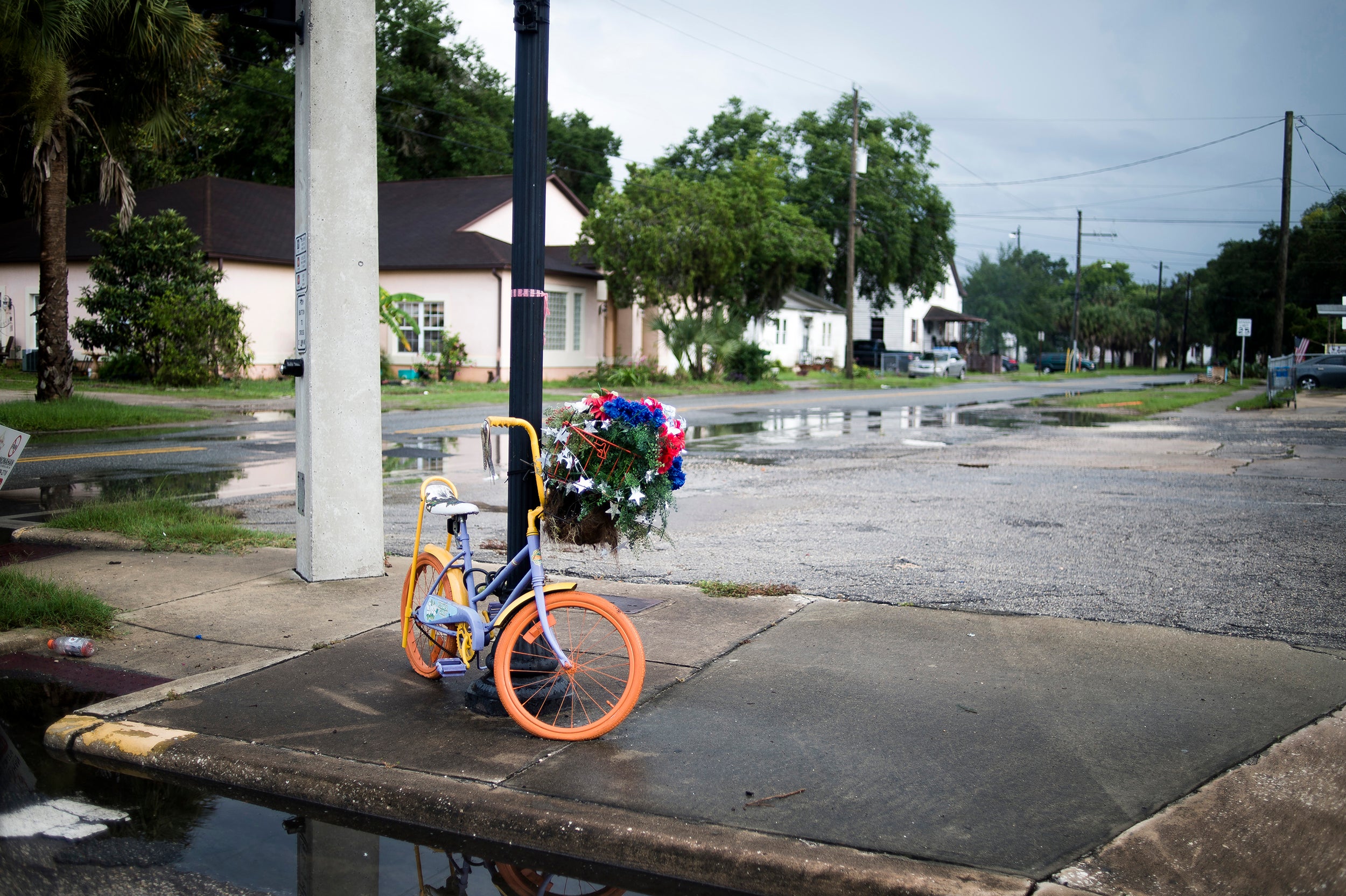
Smith had come to visit one of the only shops that were open – the Army recruitment office.
“The military is probably the best place for me to get some opportunities and to earn some benefits,” he says.
“This place is kind of hollow,” he adds. “Everything’s closing. Kmart gone, J.C. Penney’s gone. I’m just saying, you kind of wonder what’s next.”
City officials have the same question. The closures of retail stores not only mean a loss of jobs but also a decline in sales tax revenue that can be used to address the city’s many needs.
Palatka’s cracked and rusty water pipes, some of which haven’t been replaced since 1886, seemed to be exactly the type of problem both parties in Washington wanted to address.
But Palatka has had a tough time finding an ally, according to City Manager Terry Suggs.
The city’s population made it slightly too big, by about 500 people, to be eligible for federal grants and loans to assist rural communities with waste-management problems, says Suggs.
Suggs adds he sent emails, made phone calls and visited with lawmakers in the hope of securing waivers so Palatka might qualify for assistance. But no decision has been made.
“We need folks in Washington to get their act together!” Suggs says.
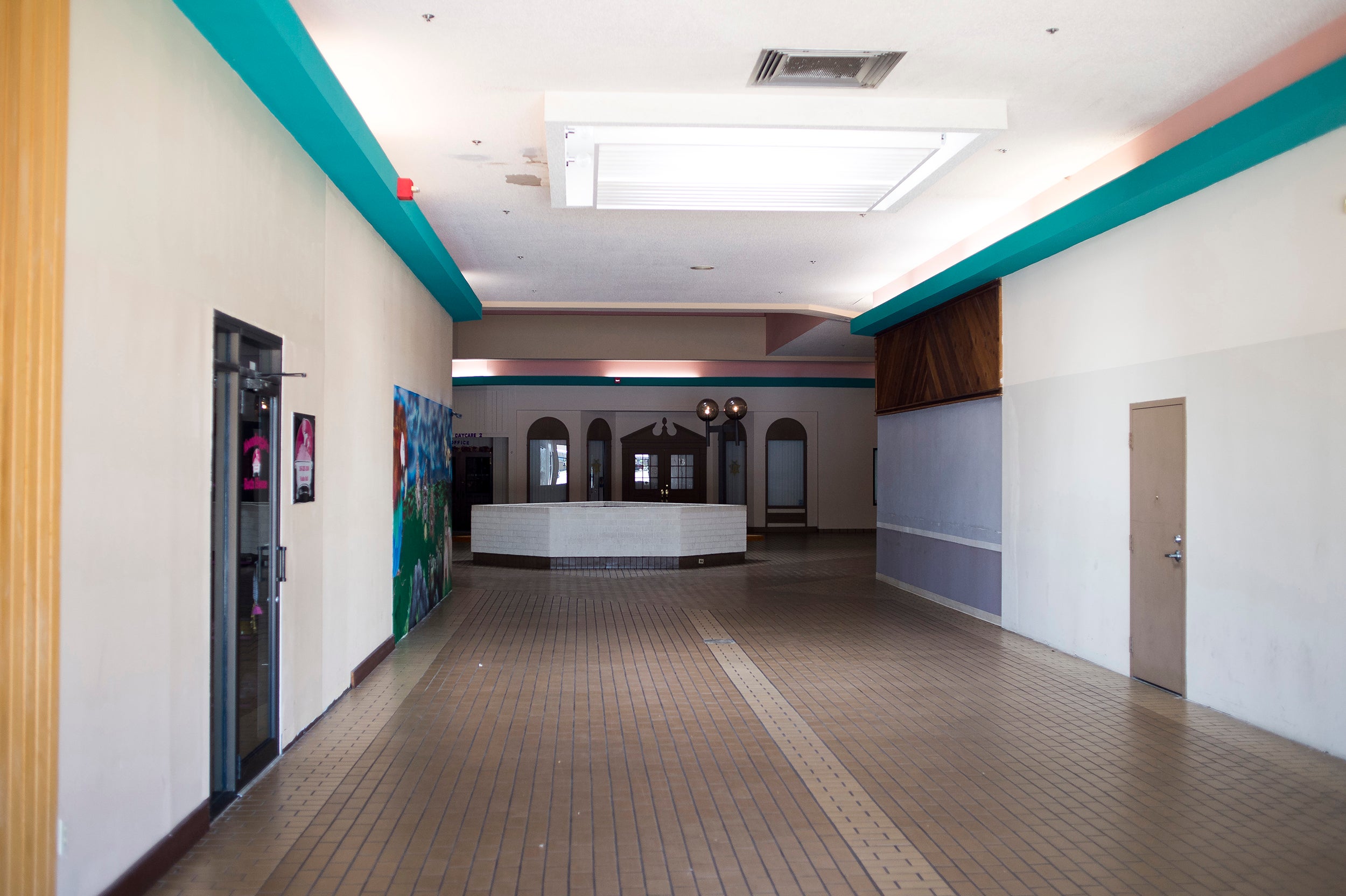
Among those to hear from Suggs was Ted Yoho, the Republican congressman whose district includes Palatka. Yoho counsels patience.
“The Trump administration is just getting started,” he says. “It has taken a while for nominees to get approved, so it will just take some time.”
The city also appealed to the state for $1.5m (£1.2m) to help with water treatment during the most recent legislative session in the spring.
On a recent evening, residents flocked to Beulah Baptist Church, ready for a revival. The preacher commanded the worshipers to be hopeful even in the presence of hardship.
“Every time I step forward, it feels like I’m taking two steps back,” he said. “But after all I’ve been through, I ain’t gonna let nothing, or nobody, take my joy! Grab it! Get your joy back!”
Applauding him was Isaac Brinson, 44, whose smile displayed his teeth capped with gold grilles with dollar signs on them.
Brinson, who as a convicted criminal lost his voting rights, says he would not have supported Trump had he been allowed to cast a ballot. But he adds he appreciated Trump’s ability to hustle. He was a hustler, too.
Brinson says he had planned on using the money he earned from selling drugs to help start a day care centre. Then he was arrested. When he was out of prison, he opened his own business because he couldn’t get a job.
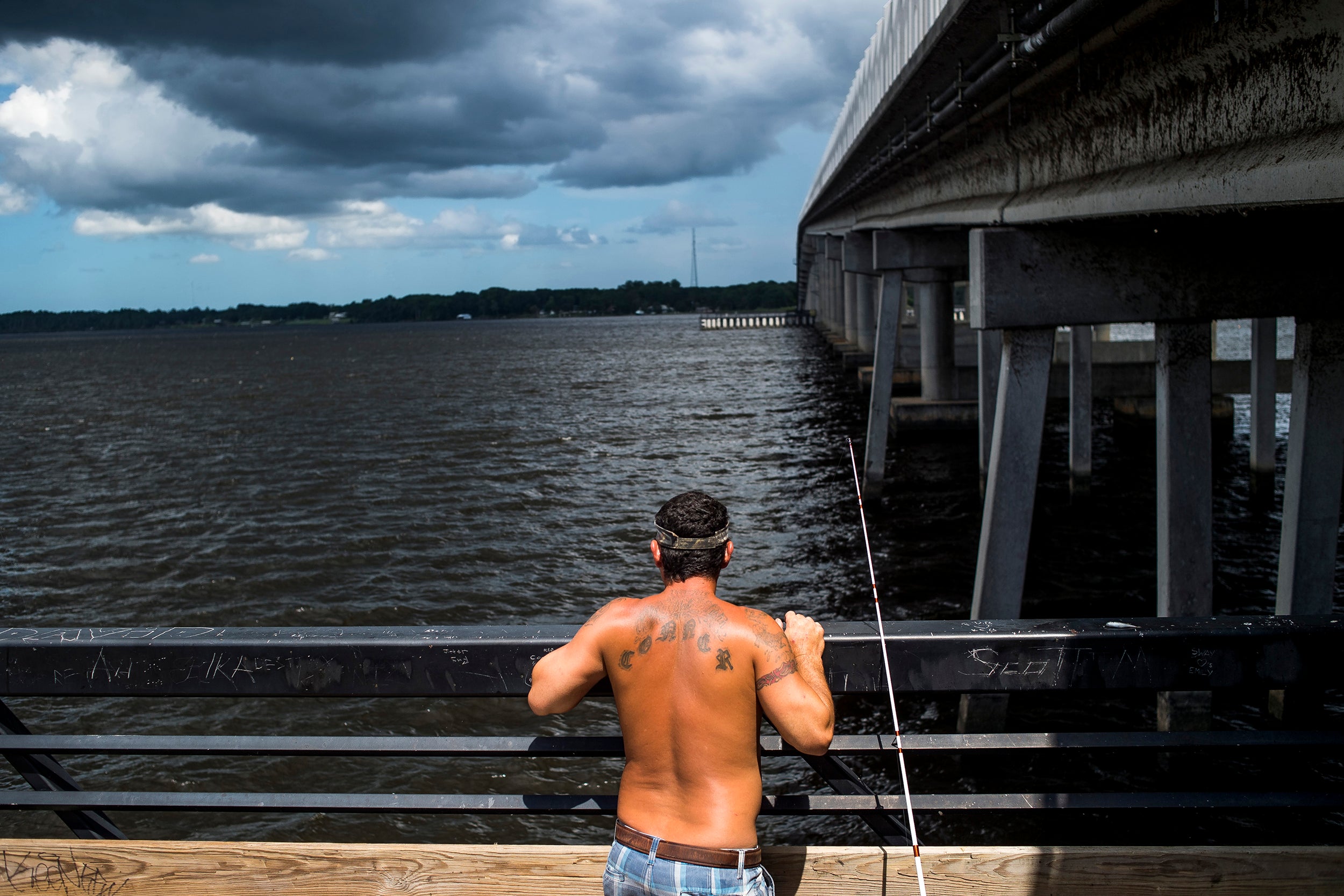
“I took a bucket, some detergent and one of those sticks with a large brush and started my own carwash,” Brinson says. “Now, I don’t even wash cars. I have two people working for me each day. That’s what we need to do here.”
Hill figured the city would need that kind of nerve, just on a larger scale. Everyone had to hustle. When Suggs heard that the owner of Bass Pro Shops was coming to town for a bass tournament this year, he and the mayor travelled to the private airport to try to persuade him to build a store in Palatka.
There have been a few good signs. Georgia-Pacific, the paper mill, announced in June that it was adding a new processor to the factory, bringing 80 more jobs to the community.
The corporation has been working with the local school board to train high school students to prepare them for the manufacturing jobs of today.
“We have confidence that Palatka and the surrounding area can support the kind of skilled employees we need now, but more importantly, in the future,” says Karen Cole, a company spokeswoman.
She adds: “You can’t underestimate the value of a positive, long-term relationship with a community, which we very much have in Palatka.”
A 10-minute drive from the mill, a local accountant and his wife had bought space downtown to start the Uncork & Unwind bar, with $7 craft beer and the most expensive wine in town. Sitting on a stool there one evening is Killebrew drinking a Raging Blonde with real estate agent Robbi Correa and the owner David Griffith.
“If we just improved our education system, we can have more jobs,” says Griffith, tending the bar.
“But we need good jobs,” says Killebrew. “This way people can stay.”
They were happy that there were more jobs coming to the mill but feared how long it would be until, once again, technology rendered them irrelevant.
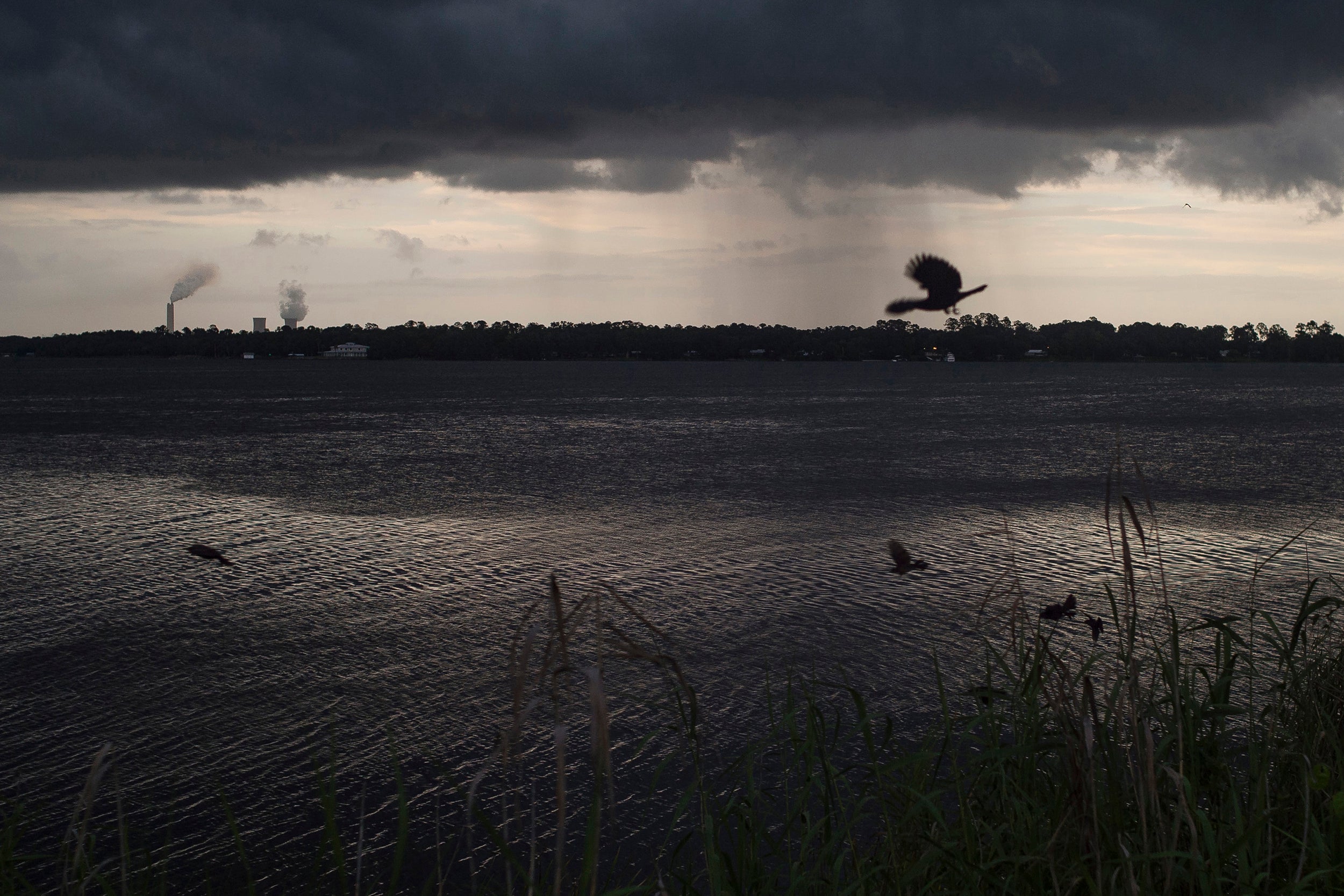
Correa, a retired teacher from Connecticut, cast her hopes on tourism. If more people see the river, she says, they would choose to retire here, as she has.
It was earlier that day that Mayor Hill and the visiting environmental enthusiasts had to evacuate the boat. After climbing out, the group dined in a local ‘welcome centre’ – the town’s official hub – on food from the local branch of the buffet chain Golden Corral and discussed how building hiking and biking trails had improved other small towns in Florida.
From the windows, they could see the sky clearing in shades of blue and pink. Carr, who led the group off the boat, looked again to the St Johns’ flowing waters.
They walk out of the centre and head back to the docks. As the last speckles of the day’s sun sparkle on the river, they climbed aboard the Pride of Palatka and trail away. After the rain, the conditions seemed just right.
© Washington Post
Join our commenting forum
Join thought-provoking conversations, follow other Independent readers and see their replies
Comments